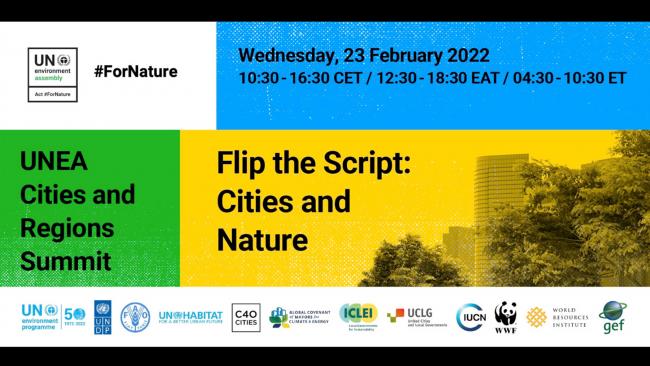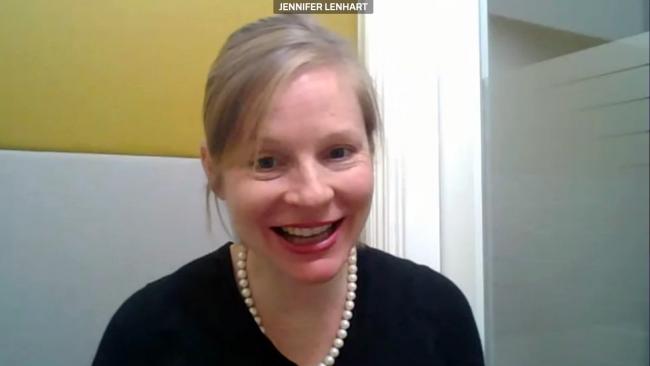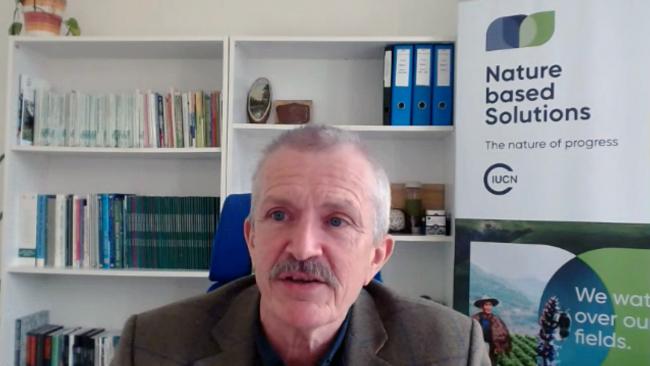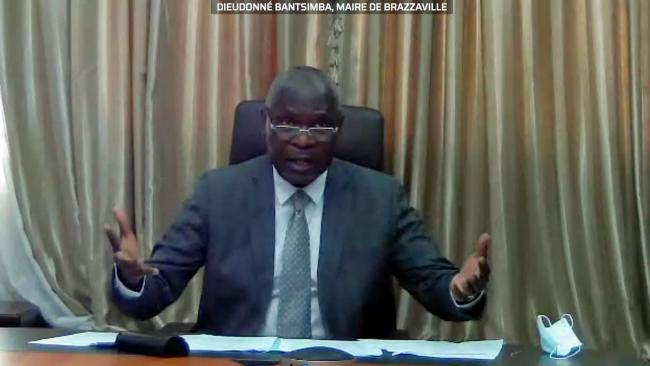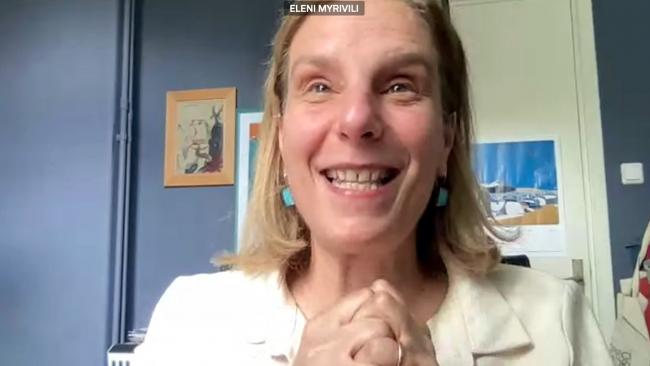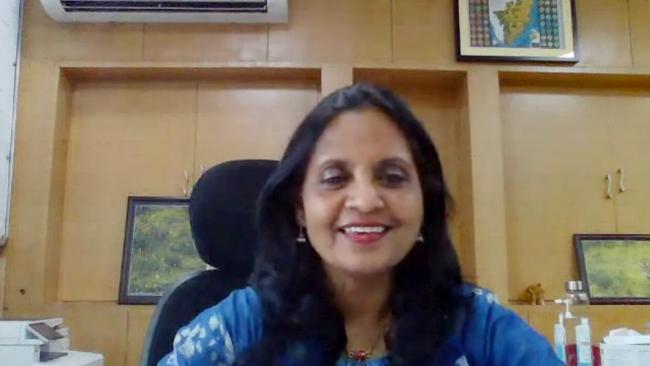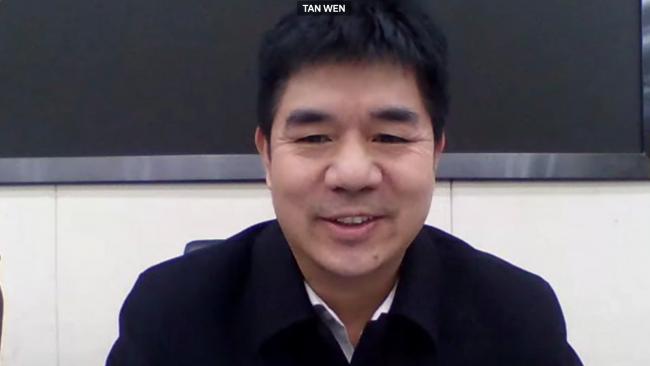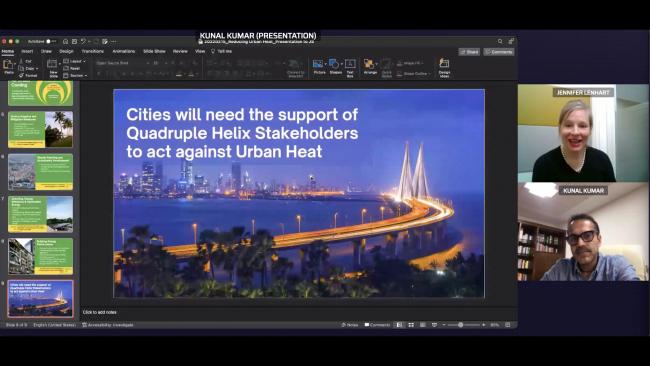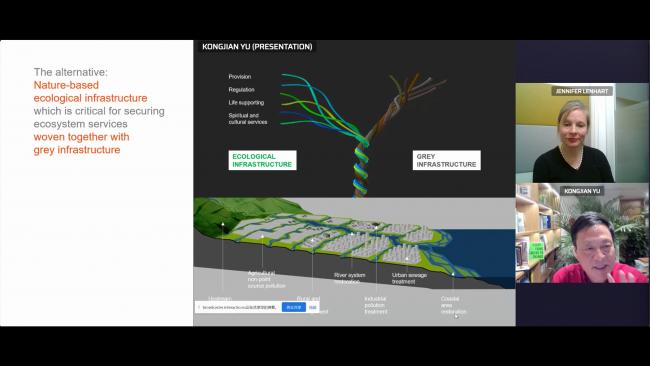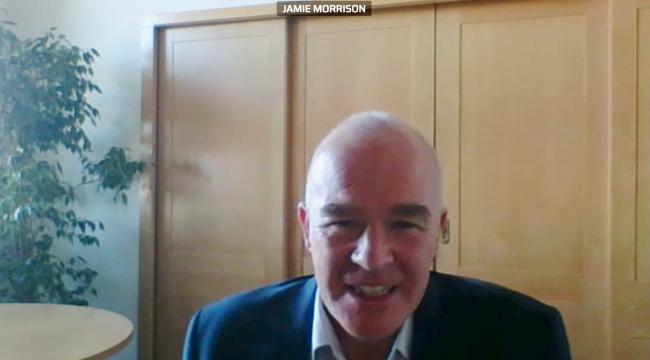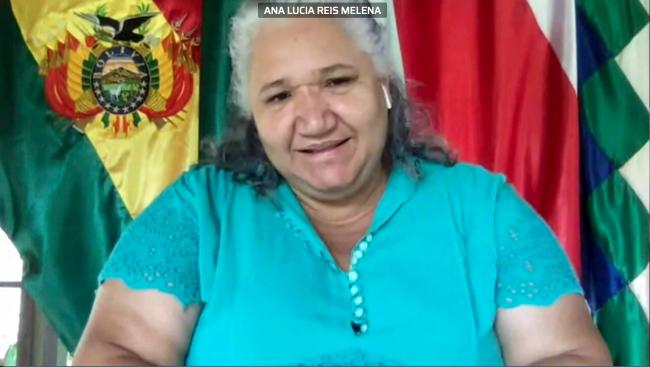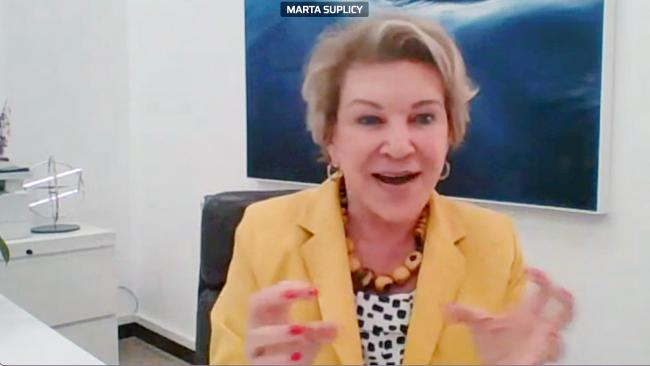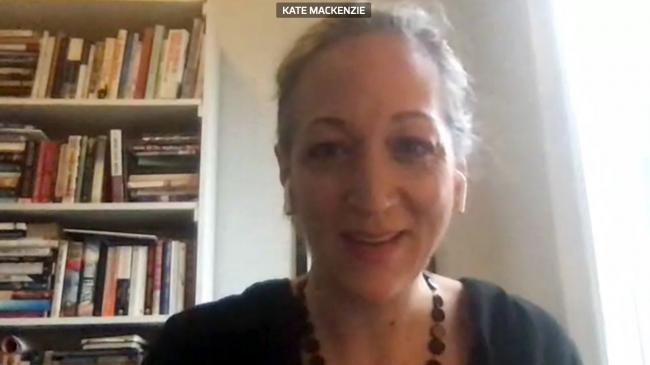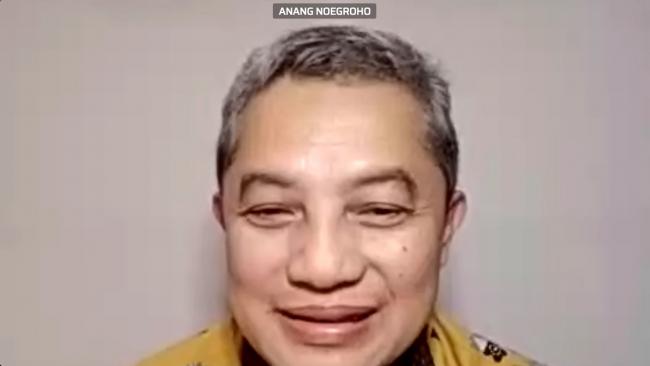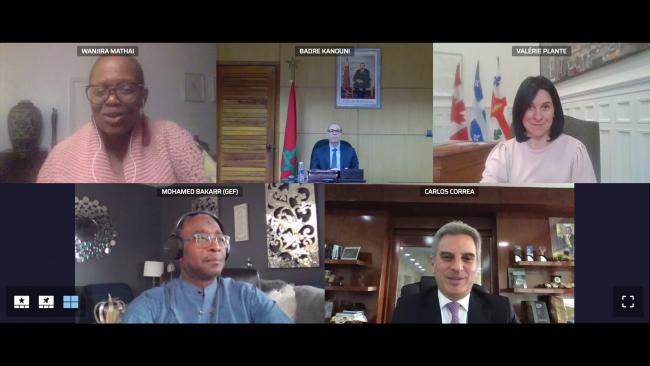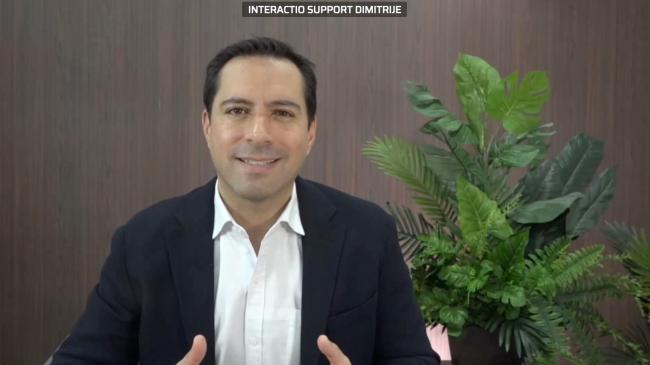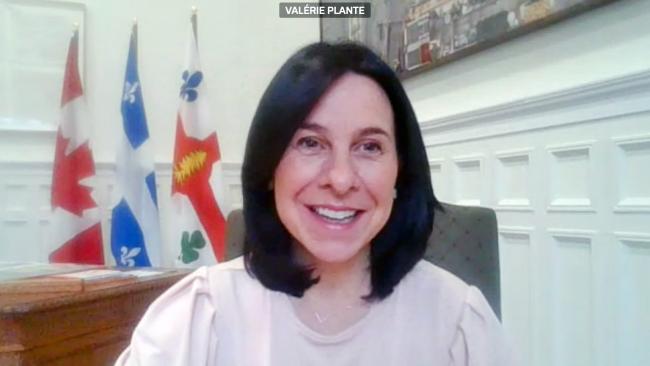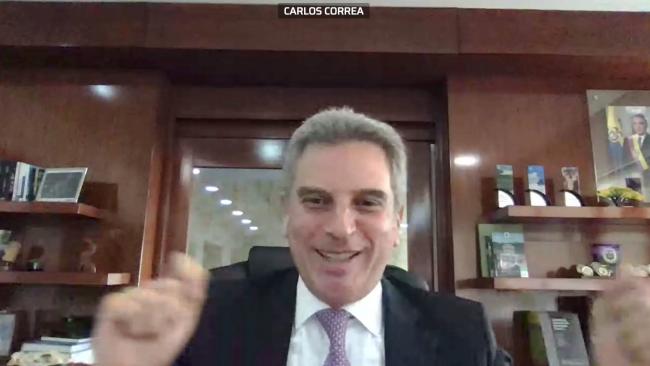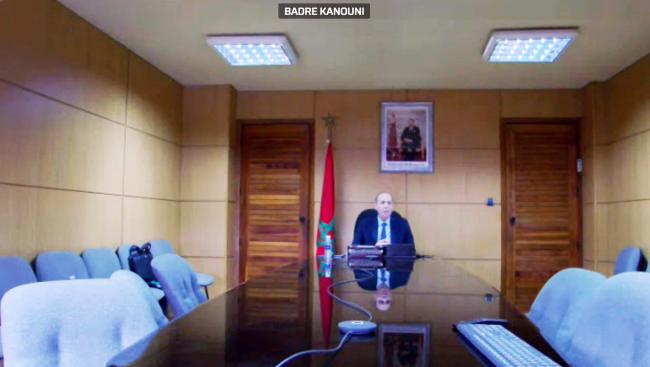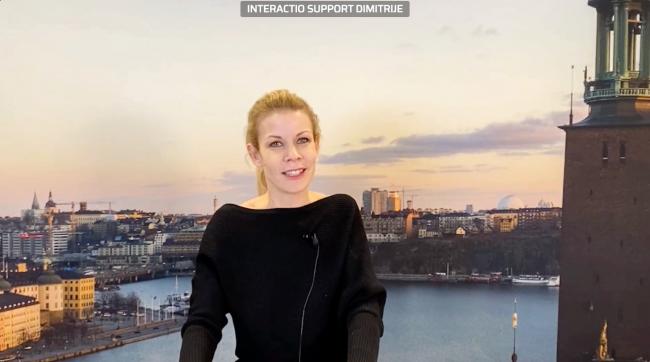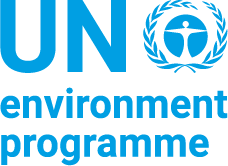The Second UN Environment Assembly (UNEA) Cities and Regions Summit convened virtually on 23 February 2022 under the theme, “Flip the Script: Cities and Nature.”
Martina Otto, Head, Cities Unit, Economy Division, UN Environment Programme (UNEP), welcomed participants, outlining the objective to highlight the role nature can play in cities and regions.
Maimunah Mohd Sharif, Executive Director, UN-Habitat, and UN Under-Secretary-General, presented keynote remarks, sharing optimism that cities and regions can realize goals set out in the New Urban Agenda, which envisions well-planned and well-managed cities as a tool for sustainable development. Valérie Dumontet, Vice-President, Aude Department, France, called on leaders to be inspired and make their commitments visible and audible as “the actors of transformation” to face the future and leave no one behind.
Otto concluded the opening session, highlighting growing evidence that protecting and conserving nature makes business sense and calling for mindset change that embraces natural accounting.
Urban Nature-based Solutions to Counter Climate Risks and Limit Global Warming
Moderator Jennifer Lenhart, Global Lead, WWF Cities, said cities are spaces of challenge and change, and investing in nature tackles the issues of climate change and pollution, and improves quality of life.
Stewart Maginnis, Deputy Director General, IUCN, underscored that nature-based solutions (NbS) are 50% more cost effective than standalone grey alternatives and 28% more productive. He emphasized urgency, calling for a whole-of-society approach and recognizing that each urban dweller has agency to implement such solutions.
Dieudonné Bantsimba, Mayor, Brazzaville, Republic of the Congo, noted the approval of a framework to protect the environment in Brazzaville, including through reforestation, the creation of green spaces within the city, and the encouragement of urban agriculture.
Eleni Myrivili, Chief Heat Officer, Athens, Greece, stated nature is the basic, only, and most important solution to “beat the heat” in cities. Athens, she said, has learned from others, including from the Cool Cities Network and Resilient Cities Network.
Supriya Sahu, Principal Secretary, Environment Climate Change and Forest, Government of Tamil Nadu, India, highlighted solutions to address climate vulnerability in the coastal city of Chennai, an UrbanShift city.
Ming Jiang, Deputy Director, Development and Reform Commission, Chengdu City, China, on behalf of UrbanShift, shared approaches to cope with the risks of climate change by, inter alia: respecting nature in the master plans of urban development; establishing infrastructure to reduce commuting and improve urban efficiency; and restoring nature.
Rebecca Pow, Parliamentary Under Secretary of State, Minister for Nature Recovery and the Domestic Environment, Department for Environment, Food and Rural Affairs, United Kingdom, highlighted the mandatory Biodiversity Net Gain mechanism under the Environment Act 2021, which requires all new development in the UK to restore at least 10% more nature than what was present at the start of the project, contributing to the UK's goal of restoring species abundance by 2030.
Kunal Kumar, Joint Secretary, Ministry of Housing and Urban Affairs, India, presented the collaborative effort among federal, state, and local governments to reduce urban heat in India in the context of rapid urbanization.
Geordin Hill-Lewis, Executive Mayor, Cape Town, South Africa, spoke on efforts to implement NbS to improve water security, noting that while grey infrastructure is being used, the most cost-effective tool with the best yields is through the removal of alien vegetation in water catchment areas.
Ingrid-Gabriela Hoven, Director-General, German Development Agency (GIZ), drew attention to the UNEP publication Smart, Sustainable and Resilient Cities: the Power of Nature-based Solutions, demonstrating the cost-effectiveness of NbS.
Kongjian Yu, President, Turenscape, Founding Dean and Changjiang Chair Professor of Design, College of Architecture and Landscape Architecture, Peking University, elucidated on the concept of a “sponge city,” where cities use NbS to manage, among others, storm water surges.
Closing the session, Andy Deacon, Acting Managing Director, Global Covenant of Mayors for Climate and Energy, said while cities are already extremely vulnerable to the climate crisis, NbS can be employed to increase resilience, improve livelihoods, and combat the many crises they face. He highlighted the publication Beating the Heat: A Sustainable Cooling Handbook for Cities as a practical guide to inform city planners on what can be implemented.
Leveraging Sustainable Food Systems for Nature-Positive Cities
Jamie Morrison, Director, Food Systems and Food Safety Division, Food and Agriculture Organization of the UN (FAO), highlighted the need to empower local governance and increase exchange with national governance, referencing the benefit or urban and peri-urban agriculture (UPA), such as community gardens and rooftop gardens.
Izabella Teixeira, Co-Chair, International Resource Panel, emphasized the call to transform the world’s food system, explaining that with 70% of food consumed in cities, it is critical to “change how, and what, urban populations are eating.” She introduced the launch of the Think Piece Urban Agriculture: A Natural Resource Perspective, as not only a technical and science report, but also as political guidance.
Ana Lucía Reis, Mayor, Cobija, Bolivia, shared experiences linking conservation to the empowerment of youth and women in a region with more than six million hectares of Amazon, such as through a school breakfast programme.
Marta Suplicy, Secretary of International Relations of São Paulo, Brazil, said that remodelling food systems to take climate change into account will require major changes in power dynamics to shift the scope and restore biological balance.
Kate MacKenzie, Director, Mayor's Office of Food Policy, New York City, US, outlined a number of initiatives underway in New York City to holistically address food and the environment.
R. Anang Noegroho Setyo Moeljono, Director of Food and Agriculture, Bappenas, Indonesia, and National Convener of the UN Food Systems Summit, said government is encouraging that food system planning be included in urban planning. Honest Kessy, Director of National Food Security, Ministry of Agriculture, Tanzania, and National Convener of the UN Food Systems Summit, noted steps taken to encourage local policies to be supportive of UPA.
James Njiji, on behalf of Manuel de Araújo, Mayor, Quelimane, Mozambique, and UN Food Systems Summit Champion, said that the Coalition on Sustainable and Inclusive Urban Food Systems paves the way for sustainable food system by strengthening participation from local and international stakeholders. Nona Yehia, Chief Executive Officer and Co-Founder, Vertical Harvest, presented hydroponic vertical greenhouses as a business solution aimed at growing food while increasing meaningful employment and professional development.
Musonda Mumba, Director, Rome Centre for Sustainable Development, UN Development Programme, summarized the discussion, highlighting, inter alia, NbS as an entry point for local governments to act on global goals.
Scaling up Solutions to Harness the Power of Nature in Cities
Wanjira Mathai, Vice President, Regional Director for Africa, World Resources Institute, moderated the panel, stating that while cities are often seen as destroyers of nature, this view is shifting.
Mauricio Vila Dosal, Governor of the State of Yucatán, Mexico, on behalf of RegionsWithNature, ICLEI, called for policies that focus on cities’ nature and sustainability, saying these should be a cross-cutting axis of government policies.
Valérie Plante, Mayor of Montreal, Canada, on behalf of CitiesWithNature, ICLEI Global Biodiversity Ambassador, said the COVID-19 pandemic has renewed efforts to create green urban spaces, and encouraged transparency in actions so citizens are aware of local governments’ policies.
Carlos Eduardo Correa Escaf, Minister of Environment and Sustainable Development, Colombia, drew attention to cities’ role in achieving Colombia’s goals of having net zero emissions and being nature positive by 2050.
Badre Kanouni, Chairman of the Board, Al Omrane, Morocco, outlined numerous initiatives to increase green spaces and reduce urban sprawl in Morocco.
Mohamed Bakarr, Lead Environmental Specialist, Global Environment Facility (GEF), underscored the importance of NbS to achieve the global goals.
Anna König Jerlmyr, Mayor, Stockholm, Sweden, C40 Vice Chair, said Stockholm demonstrates that a healthy environment is essential for long-term prosperity, reporting a 60% reduction in emissions since 1990 while simultaneously increasing population by 300,000 and doubling GDP.
Inger Andersen, Executive Director, UNEP, and UN Under Secretary-General, spoke of the need to normalize positive examples of solutions through multilevel governance and investing in nature's infrastructure.
Otto closed the summit, announcing that the outcome document will be made available widely and reported to the resumed fifth session of UNEA on 2 March.
IISD's Summary: A summary report of this event will be available on this site on Friday, 25 February 2022.
To receive free coverage of global environmental events delivered to your inbox, subscribe to the ENB Update newsletter.

